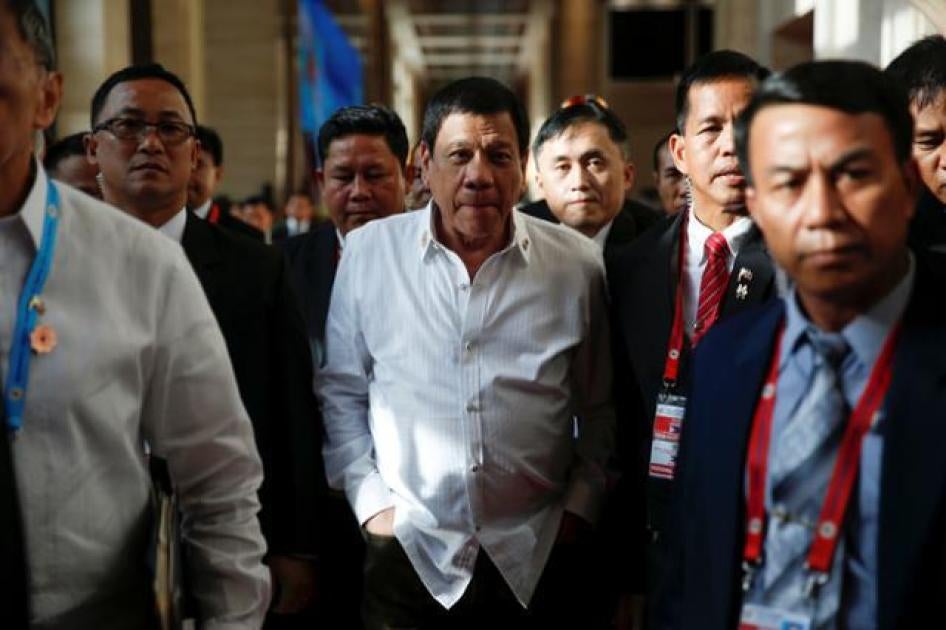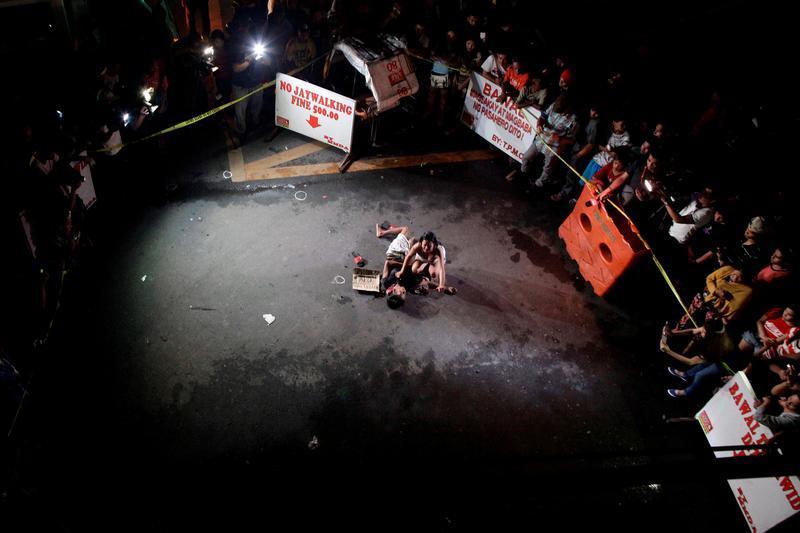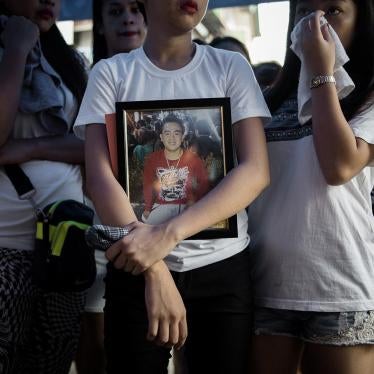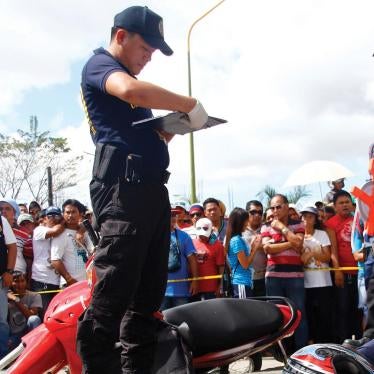Philippine President Rodrigo Duterte’s abusive “war on drugs” has claimed a new casualty: United States government development assistance.
The US Embassy in Manila announced on December 14 that the US government would deny the Philippines government a new Millennium Challenge Corporation (MCC) grant due to “significant concerns around rule of law and civil liberties in the Philippines.” The MCC is a US government foreign aid agency dedicated to poverty relief through funding to health, infrastructure, energy and other sectors. The statement alluded to the government’s full-scale assault on basic rights by specifying that criteria for MCC aid recipients “includes not just a passing scorecard but also a demonstrated commitment to the rule of law, due process and respect for human rights.”
The grant denial constitutes a significant loss to the Duterte government. The MCC disbursed US$434 million to the Philippines from 2011 to 2016 and the decision to deny additional funding to the Philippines appears to scuttle a second five-year funding grant likely targeted at large-scale infrastructure projects that the MCC had agreed to in December 2015.
The US government and other foreign donors to the Philippines have good reason to be dismayed by the Duterte government’s steamrolling of the rule of law and human rights. Since Duterte took office on June 30, his signature “war on drugs” has claimed the lives of more than 6,000 Filipinos. Philippine National Police statistics indicate that police killed 2,102 “suspected drug personalities” between July 1 and December 14. Police have attributed those killings to suspects who “resisted arrest and shot at police officers,” but have not provided further evidence that police acted in self-defense. The Philippine National Police say that an additional 3,993 alleged drug users and drug dealers were killed by “unidentified gunmen” between July 1 and December 12. There are allegations that “death squads” composed of plainclothes police personnel are committing some of those killings.
These deaths demonstrate how Duterte is delivering with a vengeance on campaign promises to apply extrajudicial violence as a crime control method. During his 22-year tenure as mayor of Davao City, Duterte had been linked to the city’s death squad. He ran for president on a platform that advocated violent measures, including killings of criminal suspects, to “solve drugs, criminality, and corruption in three to six months of taking office.”
There’s no end in sight.
Duterte has praised the spiraling body count and in September stated that he would extend his bloody anti-drug campaign for an additional six months. Duterte underscored his personal contempt for human rights and rule of law on December 12 when he publicly admitted that he had personally killed suspected drug users and drug dealers while mayor of Davao City. He said he would “just patrol the streets really looking for an encounter to kill” to inspire local police to do likewise.
The US government’s denial of development aid isn’t its first attempt to prod Duterte to stop the killings. In November, the US State Department suspended the sale of 26,000 military assault rifles to the Philippine National Police because of opposition from Senator Ben Cardin, a member of the Senate Foreign Relations Committee. Cardin opposed the deal due to “concerns about human rights violations in the Philippines.” But the decision to halt Millennium Challenge Corporation funding to impose a financial cost on Duterte’s drug war reflects the US government’s evident frustration with Duterte’s flippant disregard for human life.
Philippine Senator Leila De Lima’s senate hearings in August to probe the legality of the spiraling death toll prompted a torrent of harassment and intimidation from Duterte and other government officials. When United Nations human rights experts in August criticized the growing body count Duterte derided them as “stupid” and threatened to pull the Philippines out of the UN. When the prosecutor of the International Criminal Court warned Duterte in October that extrajudicial killings linked to the “war on drugs” may fall under the court’s jurisdiction as a “widespread or systematic attack against a civilian population,” Duterte threatened to withdraw the Philippines from the court.
The worst may be yet to come. In recent weeks Duterte has threatened to extend the killing campaign to include both human rights defenders and the lawyers of suspected drug dealers. The Philippine foreign minister announced on December 14 that the government had cancelled the planned official visit of UN Special Rapporteur on Extrajudicial Killings, Agnes Callamard, on the basis that she “will not comply with the conditions of our president” for such a visit. One of those conditions, which Callamard described as “not consistent with the code of conduct for special rapporteurs,” included requiring her to participate in a “public debate” with Duterte.
Foreign donors to the Philippines, including the US, the European Union and Australia, should make it clear to Duterte that the horrific human toll of his “war on drugs” will carry a cost in terms of suspensions of financial aid, training programs and equipment sales to the Philippine National Police. Other targeted sanctions could follow. They will send a clear and urgent message to Duterte that “business as usual” with key donors is simply not an option until the killings stop and meaningful moves toward accountability begin.









